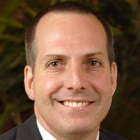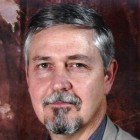Panel Presentation Session DAT24
The Profile, the Key
Date Thursday, Dec 7 Time – Room: Charlottenburg 2
Learner-centered design, predicative analytics, real-time feedback and personalisation can bring out the best in learners. Let’s hear about it from initiatives that are all about data integration and optimisation of the systems at hand to bring about consistent progress.

Marianne Checkley
CEO, iScoil, Ireland
Marianne’s work has focused on developing strategies to increase educational opportunities for all. She has developed a multi-disciplinary approach using digital technology in implementing these strategies and contribute to evidence based theory in the field. Combining the drive to develop creative solutions that have a deep impact on social equality with a love of learning Marianne has contributed to research of innovative, technology enhanced learning and teaching initiatives. Most recently her work on the set up and development of iScoil has been recognised as an exemplar of innovation in education as a Nominet Top 100 International Tech-For-Good project and a Google sponsored Social Innovation Fund THINKTECH award.
Links

David Lenihan
President & CEO, Ponce Health Sciences University, Puerto Rico
Dr.David Lenihan is one of the leading minds in medical education. He has been tasked with creating the world’s leading health sciences learning environment, one which not only results in unprecedented student outcomes but is, in addition, based on an interprofessional model, and deployed at an international scale.
Dr. Lenihan has done this before, most recently as Dean at Touro College of Osteopathic Medicine (NY), where he changed the way medical education is taught: by first “flipping” the classroom (faculty deliver lectures via iTunes and then moderate class discussions), then developing a dynamically adaptive curriculum that changes for each student based on individual knowledge and ability and, finally, by linking the curriculum with real-time, systemic assessment of both students and faculty.
Minute-by-minute monitoring of students’ knowledge enables the school to both improve student outcomes at the same time as reduce “drop out” rates by getting targeted help to students early and often.
Previously, Dr. Lenihan founded a system of outpatient clinics in the UK, which he sold. Dr. Lenihan holds a Ph.D. in Peripheral Neurosurgery/Neuroscience from the University of Edinburgh, was a peripheral nerve surgical fellow at Edinburgh, a Doctor of Chiropractic from Palmer University, and Juris Doctor from Touro University. He has worked as a postdoctoral fellow in spinal cord injury at Washington University (Saint Louis), and has published over 20 scientific papers on the assessment and repair of the nervous system.
Links

Dale Allen, PhD
President, DXtera Institute, USA
Dr. Dale Allen is president and co-founder of DXtera Institute, where he sets and leads strategic direction to remove digital integration barriers for postsecondary institutions.
Allen previously served as special assistant to the president for Innovation at Quinsigamond Community College (QCC), leading development of education and workforce development components of three National Manufacturing Innovation Institutes. He also served as special assistant to the Massachusetts Commissioner of Higher Education, leading policy development for college and career pathways. Formerly, he served as vice president for Community Engagement at QCC, where he oversaw the Transformation Agenda, a $20 million project funded by U.S. Department of Labor. Allen also founded and was principal director of 1421 Transformation Group.
He holds master’s and bachelor’s degrees from Springfield College (Massachusetts) and master’s and doctorate degrees in Public Policy from University of Massachusetts Boston.
Links

Antoni Pérez-Navarro
Lecturer, Universitat Oberta de Catalunya, Spain
Dr. Antoni Perez-Navarro has a phD in Physics for the Universitat Autònoma de Barcelona(UAB) since 2000. He got his bachelor in physics, also from UAB, in 1995.
He currently holds the position Deputy Director of Research at eLearn Center at Universitat Oberta de Catalunya (UOC) and is lecturer in the Computer Science, Multimedia and Telecommunication department (EIMT department), since 2005. His association with the university dates from 2002, starting as a teaching consultant. Between the years 2010 and 2014, he has been the academic director of the postgraduate of Geographic Information Systems (at UOC), and between 2011 and 2014 he has been postgraduate coordinator of his department. Nowadays is the director of the Technological Observatory of the EIMT department and director of the technical collection of books of editorial Ediuoc.
Apart from his activities at UOC, he works, since the year 2007, at Escola Universitària Salesiana de Sarrià (EUSS), part of UAB, where he gives classes in Industrial Engineering grades. He has also collaborated with Cartographic and Geologic Institute of Catalonia (ICGC) in its International Course on Management and Applied Techniques in Cartography.
His teaching activities range from the fields of physics and GIS in telecommunication engineering, computer science, multimedia and industrial engineering. He has also written several teaching materials in these fields, and has created more that 100 teaching videos about these topics.
Before starting his career in academia, he has worked as a GIS professional between the years 2000 and 2005 in Aurensis, S.L.. That work includes project management and design of new GIS software.
His main research interests are indoor positioning and prevention of diseases via smartphones. Regarding education, he has several contributions in journals and congresses. His main contributions are mathematical notation in physics and mathematics in online environments; and the introduction of video as a learning tool in the virtual classroom, which received the Best Innovation Project Award at UOC in 2010 with the project Present@. Nowadays, the use of video as teaching material in STEM subjects is his main focus of research in education and he is supervising a doctoral work in this topic.
Links
Moderator

Herman van der Merwe
Executive Dean, North-West University, South Africa
Prof Herman van der Merwe is Dean of the Faculty Economic Sciences & IT at the North-West University: Vaal Triangle in Vanderbijlpark & CEO of an expert centre named CUTE (Centre for the Utilisation of Technology in Education).
As an international expert on the utilisation & management of technology in education he has been invited to act as keynote- or invited speaker and plays an active role on various national and international workgroups that do research in this field.
His current research focus is on mobile & handheld devices and Serious Games and the effective use of that in higher education and everyday life. He is Founder member and one of the directors of the International Association for Mobile Learning (IAmLearn).
As a teacher, researcher, policy advocate & manager, he has been described as: ”A visionary whose fascination with technology has been informed by his commitment to serving the highest ideals of education.”